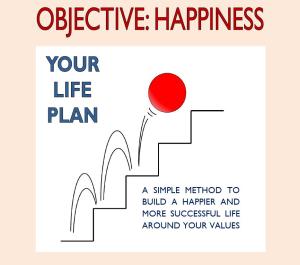 Empathy is one of those qualities that is acknowledged as being important, but for which there is little training given. One reason probably is that empathy, like some other personality traits, one is born with it more than one can learn it. Yet, there are certain patterns that can be acquired and help people interact with their fellow men better.
Empathy is one of those qualities that is acknowledged as being important, but for which there is little training given. One reason probably is that empathy, like some other personality traits, one is born with it more than one can learn it. Yet, there are certain patterns that can be acquired and help people interact with their fellow men better.
What does make empathy so effective in interpersonal relationships?
Empathic people come over as more gentle and get their way more easily, because in the interaction, they take the other side’s point of view in the picture. This makes the other party more receptive to your arguments, as they have the feeling that the outcome is not a win-lose but a win-win situation. What empathy does is create a sense of mutual respect and mutual benefit. This is true as well in private life as at work.
How can someone learn to become more empathic?
This is not a simple process, as empathy is not a skill, but part of one’s personality. The starting point will always have to be the acknowledgement by the person that he/she needs to improve. To understand the impact they make by lacking empathy, they need to see how other people react to their behavior. A good way to do this is to have a video of how they interact with others. Another powerful way is to have them role-play with an instructor who will expose their behavior. Like many issues related to personality, nothing works as well as immediate feedback and correction. They also have to be able to ask themselves “what’s in it for the other party?”, as they soon will realize that they can achieve much more when their counterpart gets something out of the “deal”. Making a list of the needs and wants of both parties before going to a meeting or negotiation can be very useful, as at least the person has to put him/herself in their shoes.
How to deal with low-empathy people?
In my view, the best way is by using your empathy and figure out what their motives might be. It is also very important to be quite firm on what you want and to not give away anything without getting something in return. Assertiveness is also a powerful tool: tell them how they make you feel and what you think about that! However, the most powerful tool of them all is very likely to make them feel that they will lose more than gain by not changing. Low-empathy people do not like losing anything.
Copyright 2009 The Happy Future Group Consulting Ltd.



 Posted by Christophe Pelletier
Posted by Christophe Pelletier  In my life, I have heard this question often and I also heard all sorts of answers, varying from one extreme to the other. Yet, there seems to be a majority of people who seem to think that intelligence is an impediment for happiness.
In my life, I have heard this question often and I also heard all sorts of answers, varying from one extreme to the other. Yet, there seems to be a majority of people who seem to think that intelligence is an impediment for happiness. Just as an example, I illustrate this with the warning on packs of cigarettes. You would think that the warning is crystal clear. Yet, it does not stop some from keeping on smoking, almost like it is a cure for cancer. They know it is quite unhealthy, but simply decide to ignore the warning.
Just as an example, I illustrate this with the warning on packs of cigarettes. You would think that the warning is crystal clear. Yet, it does not stop some from keeping on smoking, almost like it is a cure for cancer. They know it is quite unhealthy, but simply decide to ignore the warning.








